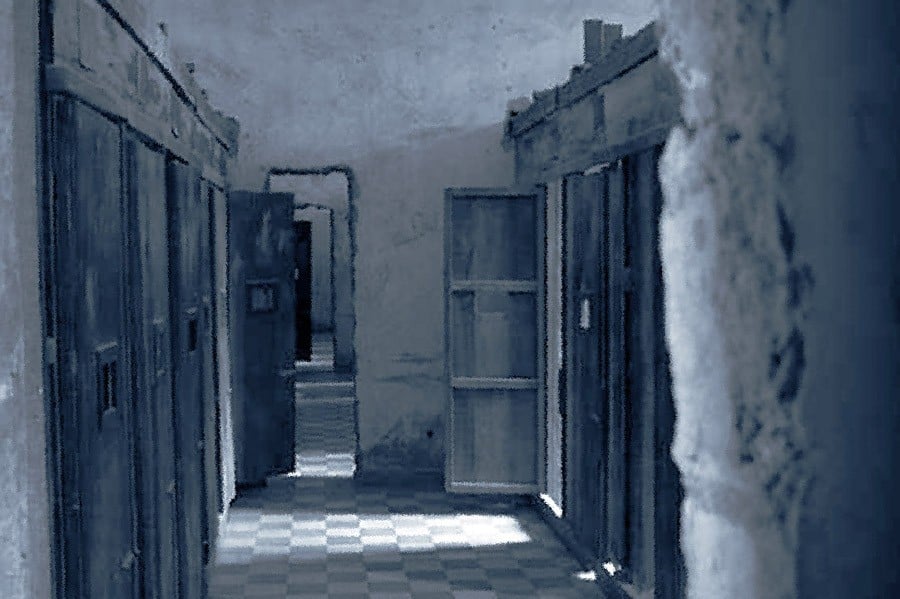
Methods of investigation often include brutal torture -- of third-degree nature

As both the government and the Law and Justice Commission of Pakistan (LJCP) contemplate how to put an end to the growing incidences of police torture, a recent investigation reveals that this is indicative of behaviours deeply rooted in our social fabric.
A senior superintendent of police (SSP) tells TNS that the late Ashiq Marth who was an inspector at the time and quite well known for fake police encounters had "inspired" him to join the force.
"Had he not subjected me to torture and humiliation, I would not have thought of getting into the police department," the SSP said. The sarcasm in his words was obvious. He said Marth had raided his house "at the behest of a prominent political figure who bore me a grudge." He had just passed his CSS examination, and the Police Department wasn’t on his priority list. But the incident left him agonized, and he made the unlikeliest career choice of his life.
"Ironically, when Marth [who was the Nankana Sahib DSP then] was killed, I was tasked to find and arrest his killer who happened to be a proclaimed offender."
According to the SSP, the anatomy of police torture is both complex and extensive -- it is so integral a part of the society that no one can escape it. It is socially pervasive and part and parcel of our culture. "I’ve come to the conclusion that irrespective of how cautiously you plan reforms to the police system, it cannot be eradicated completely," he added.
The question arises as to why the police resort to torture. A sub-inspector, who also wants not to be named, offers an explanation: "This is the best solution available to force hardened criminals to confess their crimes."
The sub-inspector, who admits to having used third degree, adds: "We are sometimes under pressure from the high-ups to show progress in cases involving heinous crimes. We are left with no other option!"
The most prevalent methods of torture, he says, include hitting the suspects with a blunt object, hanging them from the ceiling for long hours, beating them with sticks, kicking, punching, and hitting with leather strips, and burning their skin. If the victim resists, he is subjected to sleep-deprivation and, in some cases, sexual violence by the investigation officer (IO).
Several methods of psychological torture are also employed. These include parading the accused naked, and threatening to put them in solitary confinement. Such torture is frequently practised either at police stations or safe houses.
A recent innovation involves recording videos of the victim as he is stripped and tortured in police custody. This can backfire, as in the case of Salahuddin, after a video showing him being tortured to death in police custody went viral on social media. Sources in the Police Department have said it had been recorded by a policeman.
A DIG rank police officer says, on condition of anonymity, that all reforms being introduced on directions from the government are useless until the police get financial and operational independence. "It’s a tug of war between a thief and a cop," he comments. "Just as the thief does not want the cop to become more powerful than him, no government wants a police force that is independent. A police force is a powerful tool in the hands of the rulers to control people and to victimise their opponents."
The officer says a change in attitudes can only be brought about with strict management and implementation of performance evaluation criteria applied impartially in districts and regions without allowing any intervention.
He says three factors force police officials to use torture as a method of investigation. First, there is no professional obligation. Second, the police IOs lack the capability to gather evidence against the criminals with the help of scientific techniques.
"The policemen have this strong tendency to get physical as a shortcut to judicial procedures," he claims. "The social environment contributes in the development of this psyche."
He also speaks of "glamorous" interventions in the past [that] neither produced any dividends for the police force nor helped enhance its efficiency. These projects have only earned posts of choice for key officials so far. We need to carry out a performance audit of all police projects."
The DIG says a behavioral change is possible in a controlled environment, but not when a fresh recruit begins to work in the field. "Lack of supervision and contact with senior officials may result in an erosion of values. Therefore, we need to improve our supervision management at the police station level.
"Likewise, District Public Safety Commissions and Regional Complaint Authorities need to be restructured and reactivated. The internal accountability cell at the Central Police Office should be incentivised so that cases of human rights violations are uncovered across the country."
Recommendations recently submitted by the Lahore Police to higher authorities, with a view to effectively checking custodial torture and deaths